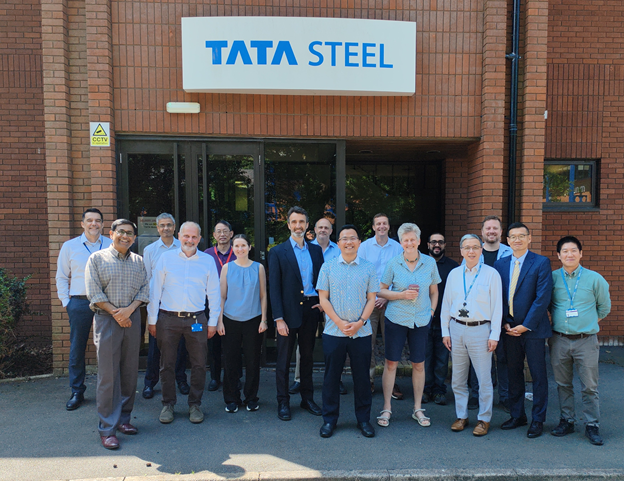ADAPT-EAF, formally known as ‘Accelerating the Development of Automotive and Packaging steel Technology for Electric Arc Furnace production’ aims to address one of the key challenges of using high-recycled-content steel – how to control and optimise residual elements that can affect performance in demanding applications.
The ADAPT-EAF project will develop an AI-powered platform to predict how different scrap types and compositions impact steel quality and processability. This will be integrated with rapid alloy prototyping and testing to generate the data required, as well as to “pioneer” automotive and packaging steel grades suited to EAF processing.
This work will reinforce Tata Steel UK’s efforts to produce cleaner, high-performance steels in the UK, while fostering local expertise and the sharing of best EAF steelmaking practices, product knowledge and robust processes across the Group.
The project is backed by £7 million worth of funding investment from Tata Steel UK, with three partner universities and a contribution from the EPSRC Prosperity Partnerships programme.
ADAPT-EAF is one of 23 new Prosperity Partnerships announced on 10 July by the UKRI Engineering and Physical Sciences Research Council (EPSRC). EPSRC is funding the partnerships with a £41 million investment, matched with a further £56 million from businesses and academia.
ADAPT-EAF brings together Tata Steel UK with the University of Cambridge, Imperial College London and the University of Warwick.
Rajesh Nair, CEO of Tata Steel UK commented: “This partnership enabled through the EPSRC Prosperity Partnership Programme has come at the right time. We need to pool all available resources available at our academia to develop technologies at speed that can lead to a sustainable steel business in the UK.”
Subodh Pandey, Tata Steel UK’s Vice President RD&T, new materials business and graphene, said: “This partnership gives us a unique opportunity to work with the UK academia and innovate new products and process technologies that have sustainability at the core.”
The five-year programme will also fund 13 PhD studentships across the three universities to conduct leading research into the advanced manufacturing of steels and steel products suited to EAF steelmaking.
Professor Howard Stone, University of Cambridge, lead academic for the project, said: “This partnership will enable us to unlock the full potential of electric arc furnace steelmaking, combining advanced data science with metallurgical expertise.”




Subscribe for free